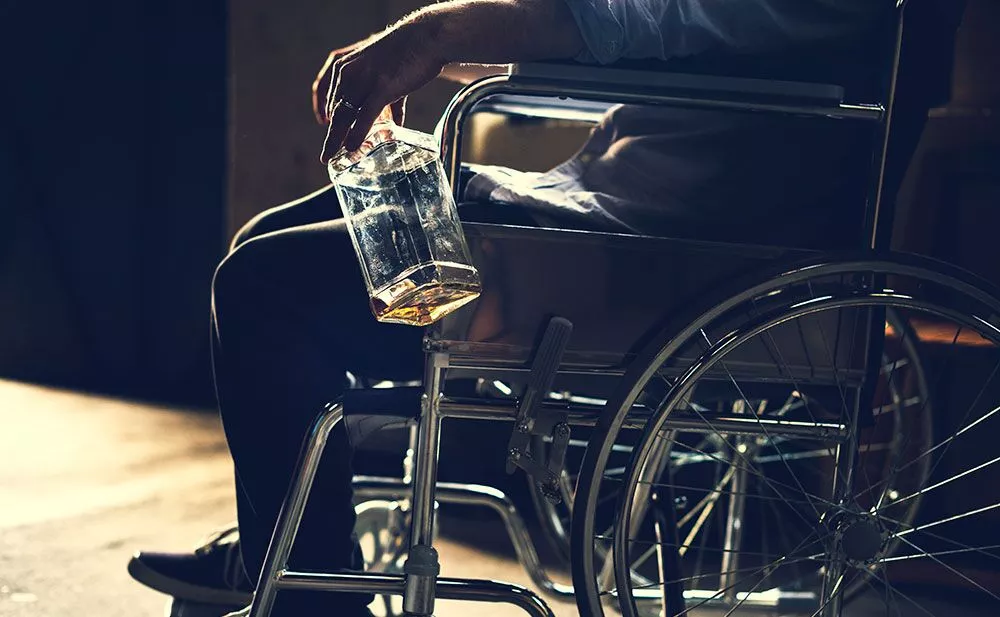Published on: September 26, 2022

It is not always easy to tell whether or not you are in a relationship with an addict. This is because addiction affects people differently, and it can also be challenging to recognize when someone has a drug or alcohol addiction. In addition, addicts are often very good at hiding their problems from others so they can continue to use drugs or alcohol without being caught by their loved ones.
Understanding an addict can be a complex and tiring process. It’s essential to take care of yourself and not feel responsible for the actions of another person. You can’t control what they do or act, but you can manage your actions and responses. Here are some warning signs that you might be struggling with understanding an addict in your life:
1. Their mood swings quickly from anger to happiness and back with no apparent reason. This is because of the effects of alcohol and drugs on mood, not because of anything in their lives. They may feel anxious or depressed after using alcohol or drugs but don’t know why because they don’t realize it’s due to withdrawal symptoms rather than any real-life problems they’re having right now!
2. The user has unexplained cuts and bruises on their body from fights or accidents related to their drug use; these include broken bones from falls and lost teeth from conflicts with others who do not share their drug use habits but are trying to take whatever money or drugs they have left over after buying more for themselves instead!
3. They’ve put themselves in danger (e.g., drinking/driving, using drugs alone at home), and no one seems to notice or care about it until after something terrible has happened—or even worse, not until after someone else has died or been seriously injured as a result of their actions!
4. People with addiction have had problems at work due to substance use, such as being late for work or not completing tasks on time because of hangovers/withdrawal symptoms/etc. Still, they don’t seem concerned by this change in behavior from what was expected before their addiction took hold (i.e., they don’t apologize or take responsibility for it).
5. They have trouble saying no to bad things because they feel like they don’t deserve better than what life has given them so far. Therefore, they are too afraid of losing any opportunity at happiness if they refuse something terrible instead of taking whatever’s offered up first! It’s hard for addicts to recognize what’s good for them because so many things are wrong with their lives already—they don’t necessarily realize how much worse things could get if they keep going down this road (or maybe even keep living their lives as usual).
6. They have missed work or school due to substance use issues multiple times over several months or longer; this behavior may result in loss of employment or academic standing at some point if it continues unchecked over time (e.g., frequent absences from classes).
7. Their friends and family tell you that they seem “high” all the time–that they may smell like alcohol or marijuana when they come over unannounced; that they seem edgy around others (e.g., hyperactive); etcetera… even though they may not admit this themselves directly!
8. An addict will always blame others for their problems and never take responsibility for their actions. They will also come up with excuses for their actions that don’t make sense and try to manipulate you into thinking they’re not at fault for anything.
9. They are constantly comparing themselves to others who are better at dealing with addiction, then criticizing themselves for not measuring up (or worse yet, criticizing YOU for not measuring up). Finally, they talk about how much better life would be without drugs or alcohol than with them (often referred to as “idealization”). This means that your loved one may think that life would be better if they weren’t using substances—but often, this idealization doesn’t last long before their addiction returns and causes problems again.
10. The person becomes defensive when questioned about drug use. They may become angry or lash out at others who try to talk to them about what they’re doing wrong about their health and well-being (e.g., refusing medical treatment because they don’t believe anything could be wrong with them).
For more information about Mental Health Conditions. Visit our Mental Health Library page. To understand and cope with your psychological symptoms, get help from our Top 10 Psychiatrists, Psychologists, and Therapists who are known for providing the best mental health treatment and psychiatry services. To book an appointment please call us at (800) 457-4573 or submit an appointment request.
Discover the essence of Harmony United Psychiatric Care through our impactful numbers. Our experienced team is dedicated to fostering mental well-being.
10
+
Years of Experience
With 10 years of unwavering commitment to mental health, we bring a wealth of experience to support our patients on their journey.
About Us58
+
Providers
Our dedicated team comprises 58 skilled therapists', psychiatrists', psychologists', ensuring personalized and expert care for each individual.
Providers13
+
Locations
Across multiple locations, we extend our reach to provide accessible mental health care tailored to diverse communities.
Locations70000
+
Patients Served
Over 70000 patients have entrusted us with their mental well-being, experiencing compassionate care and positive outcomes.
Book AppointmentWelcome to the latest edition of “Discover Harmony,” the newsletter from Harmony United Psychiatric Care! In this edition, we bring you insights, updates, and valuable information to support your mental well-being journey.
Subscribe to newsletter